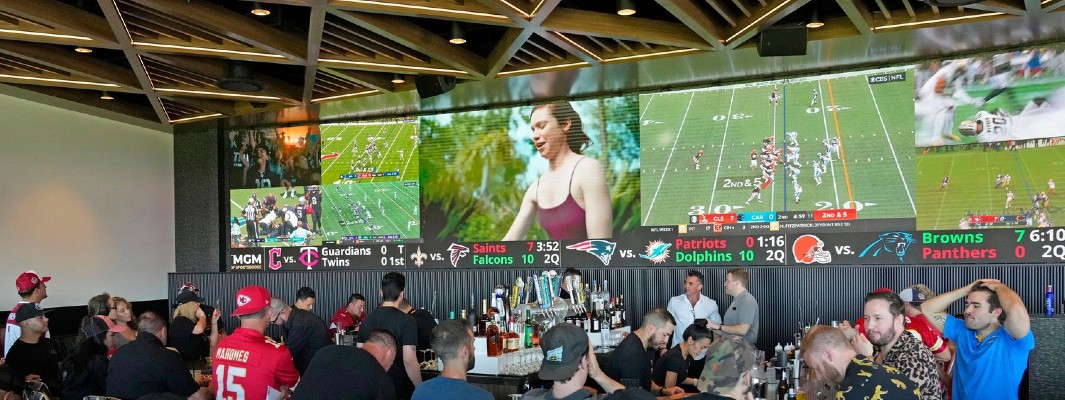Arizona Sports Betting Agreement Permits Yavapai-Prescott Tribe to Provide In-Person Wagering Services

The Yavapai-Prescott Indian Tribe has recently reached an agreement with the state of Arizona allowing them to enter the retail sports betting industry alongside more than 20 other tribal nations.
In August, a settlement was reached between the state of Arizona and the tribe that did not agree to the 2021 Gaming Compact, which legalized sports betting and additional table games, after a yearlong legal dispute over wagering and its effects on tribal gaming exclusivity.
This week, yengols.com obtained a copy of the settlement agreement between the two parties through a public records request. The agreement stated that both the state and tribe would be responsible for their own legal costs, and neither party admitted fault.
Brendan Bussmann, managing partner of gaming consulting firm B Global, mentioned in an email to yengols.com that the agreement allows the tribe based in Prescott to enjoy equal gaming opportunities as other tribes.
According to the settlement, the agreement between YPIT and the state closely mirrors both the 2021 Compact and the 2022 Compact, which addressed technical issues that arose following the signing of the 2021 Compact.
Nevertheless, the YPIT’s agreement does not include an Arizona sports betting apps license. Of the 18 mobile licenses granted by the state, 10 have been allocated to Indian tribes. The remaining eight licenses, as well as two more that have not yet been distributed, are reserved for professional sports teams in Arizona.
Bussmann noted that the settlement shows that both parties will follow a structure like the other 20 tribes in Arizona. While some tribes have shown interest in running mobile sports betting in the state, Bussmann does not anticipate any immediate changes in the near future, despite his previous support for it in legislative drafts.
What is included in the Arizona Sports Betting Settlement
The main aspect of the agreement between Arizona and the tribe includes a waiver of all claims and demands, as well as resolving the potential activation of the “poison pill” provision in past agreements.
In August 2021, one month prior to the commencement of sports betting, the YPIT formally informed the state of their decision to invoke the “poison pill” provision as outlined in the 2003 Gaming Compact. This provision allows tribes to operate an unlimited amount of Class III gaming devices and table games at a lower tax rate if the state were to permit a non-tribal entity to run gaming devices.
In 2021, tribes were given permission to offer sports betting and five more casino games at their facilities due to the Gaming Compact. The maximum number of devices allowed at each tribal casino was increased, and the tax rate for all tribal casinos operating outside of the Phoenix metro area was lowered significantly.
After months of preparation, including a comprehensive review by the U.S. Department of the Interior, a Maricopa County Superior Court judge signed the YPIT settlement on July 27.
Now that football season has kicked off, yengols.com is the place to find all Arizona sports betting promotions.
The Implications of the Settlement for the Future
The tribe first brought a lawsuit in August 2021, but their initial claim was denied by a judge on Labor Day. In late September 2021, the tribe revised their complaint. The case has seen five extensions granted as both parties work towards a settlement through negotiations.
Derrick Beetso, director of Arizona State University’s College of Law Indian Gaming and Self Governance Programs, states that while the YPIT did not receive more funds in the settlement than what was initially offered in the 2021 Gaming Compact, the agreement does offer a level of security for the state.
Beetso explained that the 2022 compact amendments are primarily technical in nature and are intended to resolve issues raised during the litigation. It is important to emphasize that the settlement clearly states that neither party accepts any responsibility or fault, and that all claims related to the litigation are dismissed.
The settlement included crucial provisions aimed at avoiding future legal expenses and uncertainty, enabling the state to move forward with its event wagering framework without facing any potential legal disputes from Indian tribes.

Author

Peterson Christopher has over seven years of experience covering sports and sports betting in Arizona, with previous roles at ArizonaSports.com, the Tucson Weekly, and the Green Valley News. He currently holds the position of lead writer at yengols.com.
Acknowledged by leading media sources such as:














